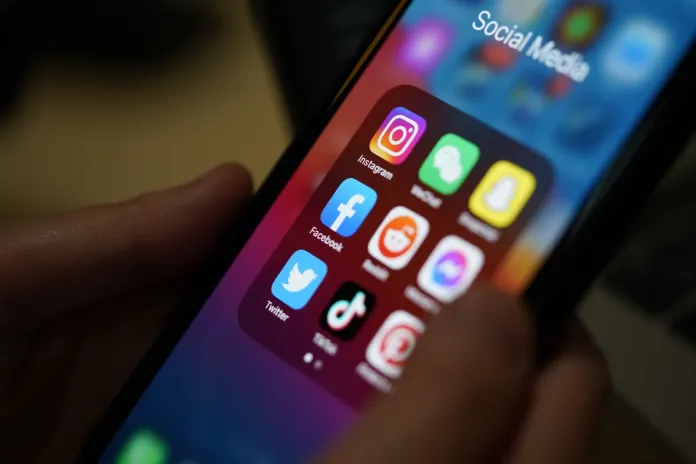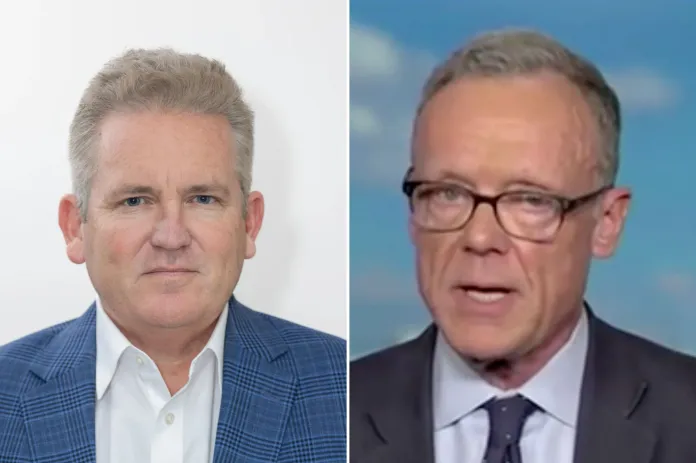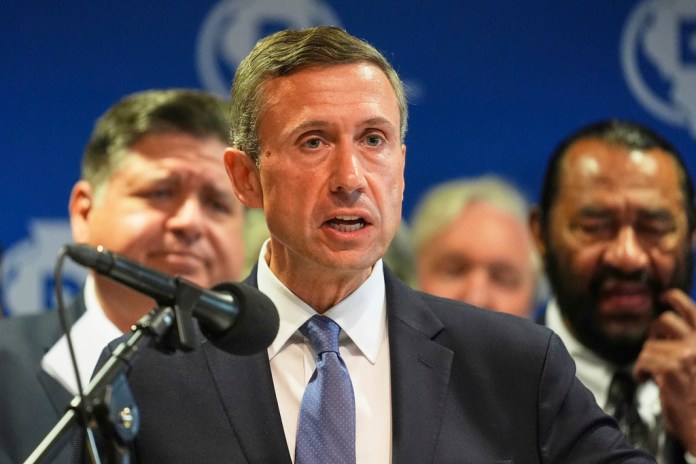Harris looks to social media influencers to spread blue vibes – Washington Examiner
At the recent Democratic National Convention, organizers invited 200 content creators, providing them with a unique opportunity to engage with Vice President Kamala Harris and share their experiences through social media. This effort aimed at modernizing outreach to younger voters saw Harris collaborating with the influencers to generate over 350 million views across various platforms during the event. Although Harris has faced criticism for avoiding traditional media interviews, the DNC’s strategy of leveraging social media content creators has been seen as effective in reaching voters and spreading campaign messages.
Key highlights from the convention included influencers being granted special access, including a dedicated “creator platform” and exclusive events like yacht parties hosted by Harris’s campaign. The DNC’s approach, which was commended by strategists, reflects a broader trend in political campaigning where connecting with audiences through trusted figures on social media can help combat misinformation and elevate voter engagement.
The success of this strategy will be assessed as the election approaches, with some creators expressing optimism about its potential impact, particularly in motivating younger voters to participate in the electoral process. While some content creators enjoyed perks like swag and workspace at the convention, there were no formal payment arrangements from the DNC, emphasizing a focus on authentic content creation. This innovative use of influencers by both the DNC and the RNC indicates a notable shift in political communication strategies as parties acknowledge the influential role of social media in shaping public perception.
Under the influence: Harris and Democrats look to social media creators to spread blue vibes
CHICAGO — Organizers of the Democratic National Convention described the invitation of 200 content creators to the convention as giving them a “front-row seat to history.”
On that front, the DNC delivered. Vice President Kamala Harris recorded multiple videos over the course of the convention with content creators. Creators were given seats inside the arena in an area dubbed the “creator platform” and they were able to request surrogate interviews. A yacht party was thrown for them by the Harris campaign.
Harris has yet to sit for an interview with any traditional media outlet, which critics have increasingly hammered her over as her campaign exits its fledging stages.
But Harris’s absence from traditional media outlets does not appear to be impacting the campaign’s ability to reach voters. The DNC touted that across the four-day convention, content created by the influencers, including the ones covering the event virtually, garnered over 350 million views on social media.
“For the first time in history, we used vertical streaming, digital clippings, and content creators to share our story and expand our reach to households across the country,” said Matt Hill, the Democratic National Convention senior communications director. “This week, tens of millions of American voters heard the story of how the Harris-Walz ticket is fighting for their families, freedoms, and future.”
Democratic strategist Brad Bannon thinks the DNC’s decision to credential influencers will “pay off big time” as Democrats attempt to reach young voters.
“If you’re the Harris campaign, you need to make sure that you reach those people so they actually vote. I mean, that’s the downside of the youth vote. They just don’t vote in proportions that older voters do,” Bannon told the Washington Examiner.
“So I think it’s great because the reality is, they get three people to get out to vote because of an influencer the DNC reached. Two of them are going to vote for Kamala Harris,” he added.
But the DNC didn’t just include content creators who post political content. One of the influencers Harris recorded videos with was Vidya Gopalan, a creator who posts mostly lifestyle content about being a mom and an Indian-American.
Gopalan’s videos highlighted her shared Indian-American heritage with Harris and featured the vice president reflecting on her fondest memories of visiting India. The video had 2.7 million views as of Monday.
The video’s reach highlights how Harris’s campaign strategy appears to have worked in the short term.
“The reality is that many folks are looking to get information in a variety of ways, and many content creators are essentially considered trusted messengers, just the new version of this new day and age,” Nubia Bastia, a creator from the Chicago area who uses the account @Latinasuprising told the Washington Examiner. “And so being able to go to someone you trust, and they can tell you, this is what the convention process is like. This is why this happens. It can help dispel some of that misinformation, which I think is really important.”
While it’s too early to tell if Democrat’s utilization of social media will translate to votes in November, the DNC’s inclusion of content creators comes as Harris’s campaign has sought to appeal to young voters and embrace an online phenomenon known as “brat summer.”
The campaign has furthered its own use of social media to drive the campaign as well. It created a TikTok account for Gov. Tim Walz (D-MN) last week that has surpassed a million followers.
“They’re getting through to people doing what they’re doing. And you know it’s different,” said Bannon. “And then my guess is it upsets some of the press corps, traditional press corps, but it’s working for them, and if it works, don’t fix it.”
Bannon also described the Harris campaign’s media strategy as continuing that of President Joe Biden’s 2020 campaign.
“I think this is a continuation of the Biden media strategy from 2020,” said Bannon, who harkened back to Biden’s 2020 campaign when critics, including former President Donald Trump, knocked him for campaigning from his basement.
“Essentially, what Biden did, I think Harris is doing now, is let Trump have the widest possible forum with the biggest possible spotlight available,” he continued.
Savannah Johnston, one of the content creators who attended the DNC, acknowledged the benefits the DNC and Harris were receiving from inviting content creators.
“I think this works out very well for the DNC in a way that a good way and a bad way, a good way in that it’s getting young people more interested because they’re following, you know, like the New York City gay dads kind of a thing, right? But also, content creators are going to be more naturally sycophantic than just kind of a traditional press whose job it is to poke holes,” said Johnston, who owns the account @savypolitics.
“It definitely gives the DNC free advertising,” Johnston told the Washington Examiner. “Yeah. But how smart of them to think of that?”
Content creators at the DNC were not paid by the Harris campaign or the DNC to attend the convention, and content creators told the Washington Examiner they were not given guidelines or required to post a certain amount of videos in return for their credentials.
“This has been completely an opportunity for us to come here and be credentialed just as media, and no one’s getting paid. And I think that’s a really cool thing because it just shows that everyone who’s here wants to be here, and I think that’s how it has to be in order for the content to be real and authentic,” said Juan Acosta, a social media influencer who creates content focused on mental health, and LGBT and immigration rights, told the Washington Examiner. “And the DNC didn’t provide any guidelines, restrictions, scripts, on anything that we needed to say. It was really trusting us to do the content that we usually do, but just do it at the DNC.”
While the DNC may not have been paying the creators, other Democratic organizations did pay some creators, according to the New York Times. The DNC did give creators “swag” when they checked in for their badges at the Raddison Blu Aqua hotel, including a Walz sugar cookie, totes, and sweaters with “Creators for Harris” printed on them, among other things.
Creators were also given workspace in the United Center in the “creator lounge” and the DNC hired a full-time staff to lead influencer and creator engagement, as well as volunteers to support creators.
The DNC was not the only one to credential content creators, with the RNC credentialing about 70. Both conventions dedicating resources to including influencers is not a coincidence. According to the Pew Research Center, 83% of adults in the United States use YouTube, 68% use Facebook, 47% use Instagram, and 33% reported using TikTok.
Meanwhile, Trump and his running mate, Sen. J.D. Vance (R-OH), have held rallies and sat down with traditional media outlets for interviews. But, Trump has also experimented with newer media this cycle, with the former president speaking on X with billionaire Elon Musk earlier this month and also sitting down for an interview with influencer Logan Paul. Trump also has an account on TikTok and regularly posts on his platform, Truth Social.
The DNC’s decision to provide resources to influencers sparked criticism from traditional media who received limited media spaces and passes to cover the DNC.
Still, content creators who spoke to the Washington Examiner said they believed there was room for both types of media to co-exist.
“I think that the reality is that these are two media formats, and there are two industries, and they have two different systems and structures. And that is, that’s just the reality. And I think the reality is that people try to get information from as many places as they can,” said Bastia. “And so perhaps that is why that trusted messenger voice is really important. And there are trusted journalists that people go to, and it’s just, it’s just, I think it’s just an additional way for folks to get more info and understanding.”
" Conservative News Daily does not always share or support the views and opinions expressed here; they are just those of the writer."




